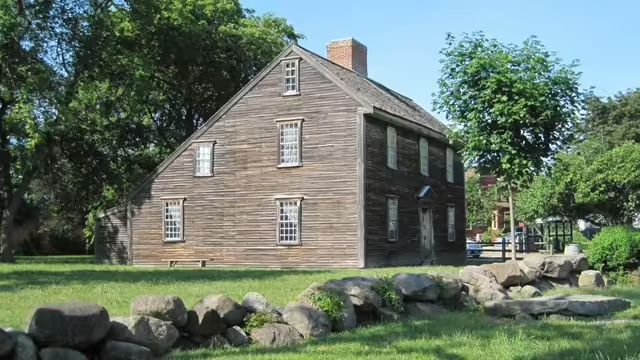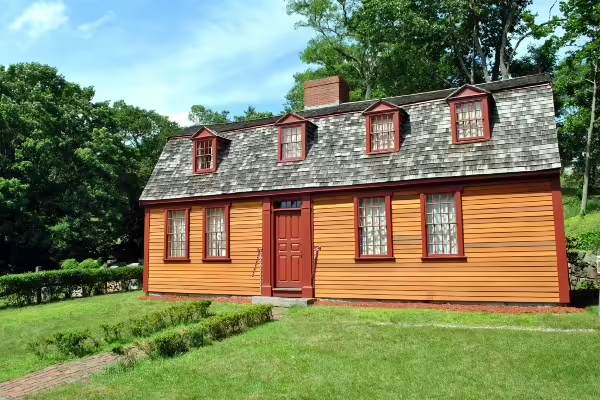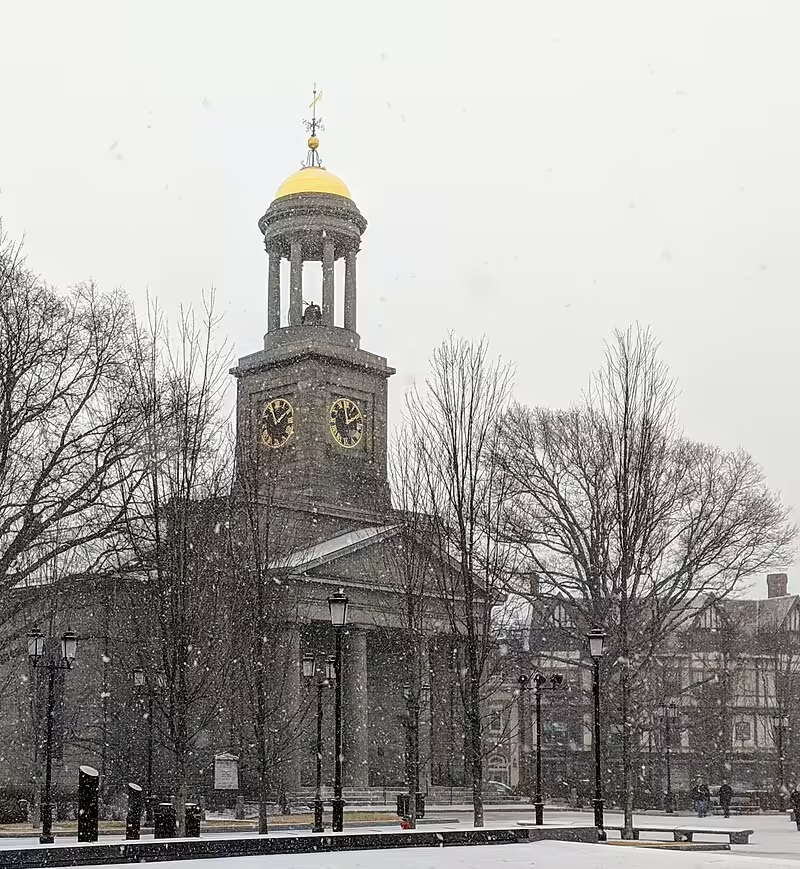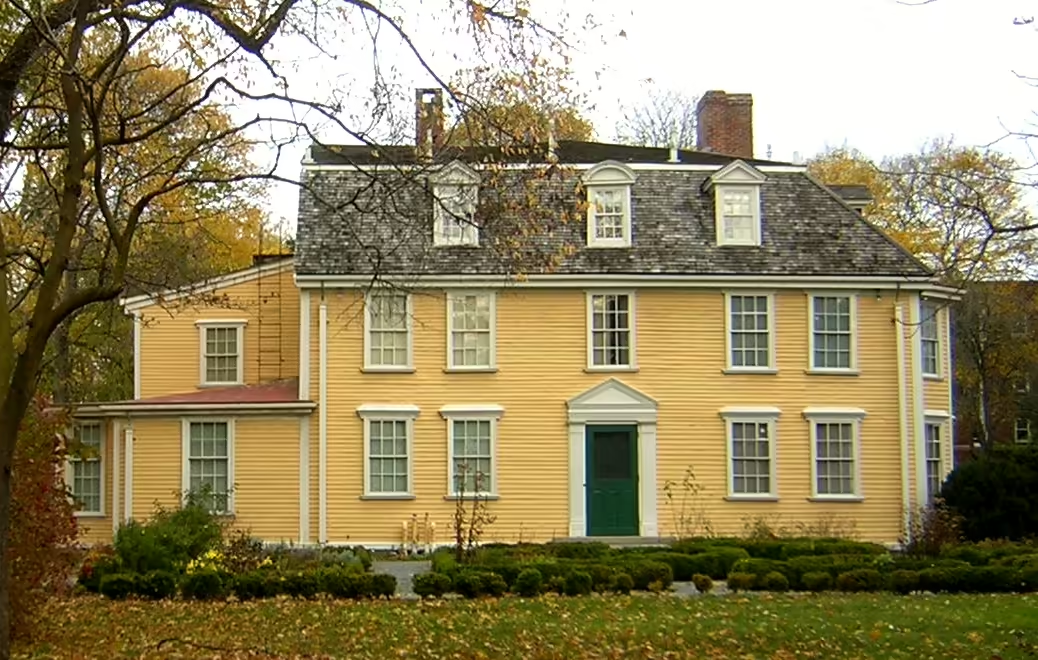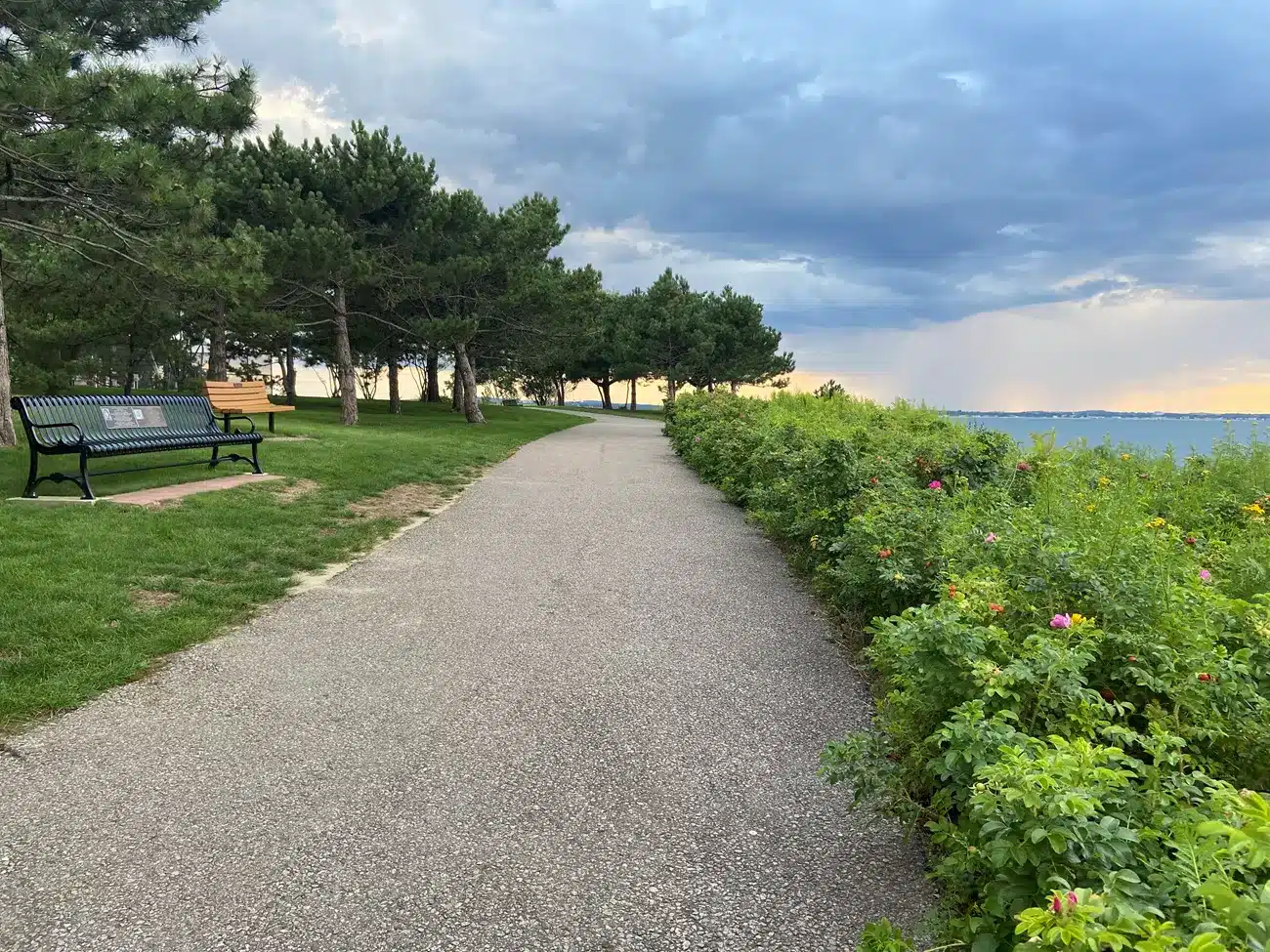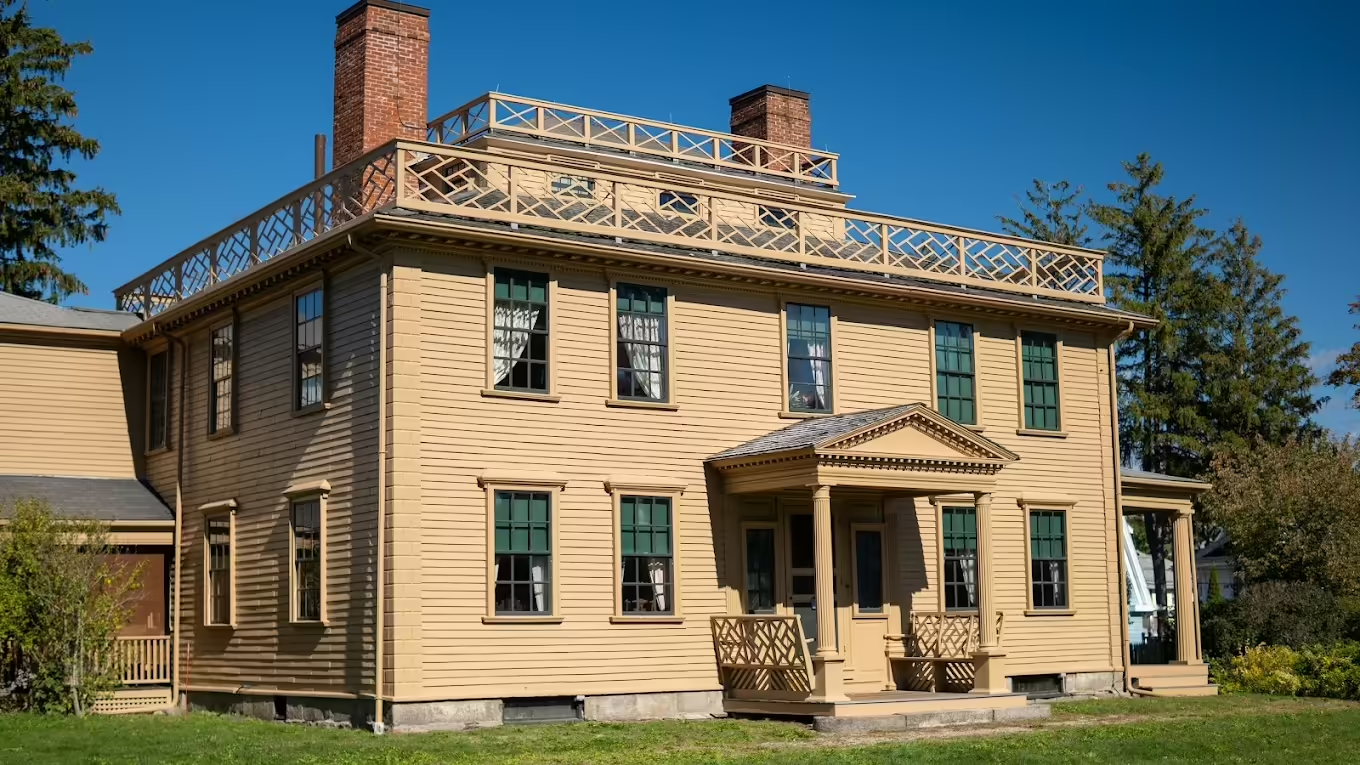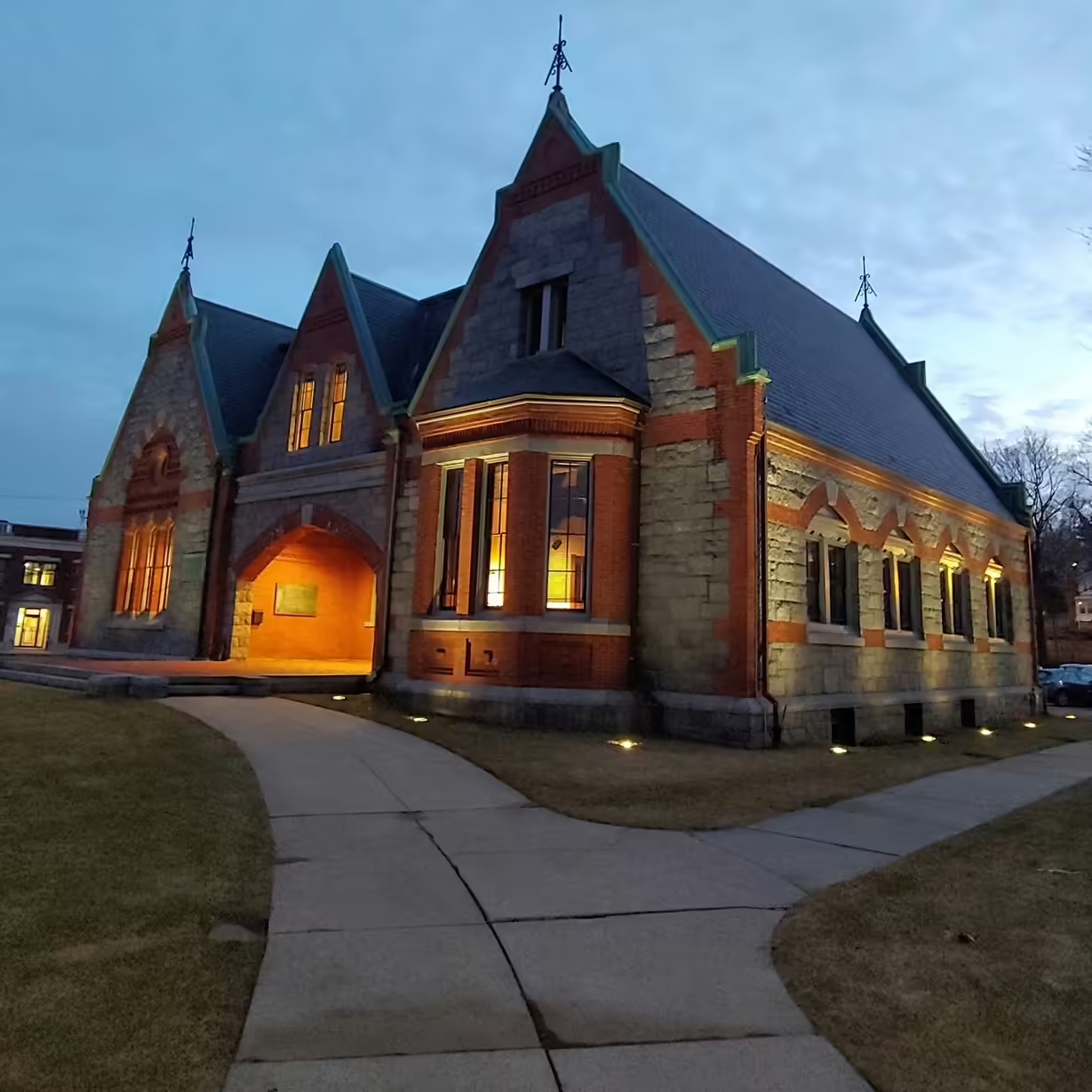Local History Resources

How Can I Use It?
Microfilm is available for use at Thomas Crane Public Library on Floor One. It may be requested in person at Help Desk 1 or by appointment with an archivist at qulocalhistory@ocln.org or at 617-376-1436 to ensure access to materials.
A library card is required to check out microfilm from the TCPL Microfilm collection.
There is a two hour limit on microfilm research when there is a line for the machines.
What Machines Do You Have?
There are two machines available – one digital microfilm reader and one traditional microfilm reader. The digital microfilm reader is an e-image data Scan Pro 3000 which can read 35mm roll film, 16mm roll film, and both negative and positive fiche. The majority of our microfilm collection is 35mm roll film.
Can I Save What I Find?
The digital microfilm reader allows for files to be saved as a pdf, jpeg, png, or tiff file that can be shared to an external storage device or a digital storage drive. The materials found in microfilm can also be printed from this machine. Please see printing and copying for current printing costs.
Popular Newspapers [Microfilm]
| Patriot Ledger | 1837 to current |
| Quincy Patriot | 1837 – 1915 |
| Quincy Daily Ledger | Apr 1890 – Dec 1915 |
| Quincy Patriot & Daily Ledger | Jan 1916 – Dec 1924 |
| Quincy Patriot Ledger | Jan 1925 – Oct 1955 |
| Patriot Ledger “City Edition” | Nov 1997 – Present |
| Quincy Sun | Sep 1968 – Dec 2023 |
| Boston Globe | Jan 1971 – Dec 2010 |
| Wall Street Journal | Jan 1968 – Apr 2006 |
| Barron’s | Jan 1966 – Dec 2002 |
| Banker & Tradesman | Jan 1970 – Dec 1994 |
Small Run Local Papers [Microfilm]
| Quincy Aurora | Jan 5, 1843 – Feb 5, 1846 |
| Norfolk County Gazette | Jan 1872 – Dec 29, 1877 |
| Quincy Advertiser | Nov 13, 1884 to 1914 |
| Quincy Monitor | Apr 1886 to May 1898 |
| Quincy Lamp | Feb 4, 1888 – Dec 1, 1888 |
| Quincy Leader | May 9, 1903 – Apr 30 1904 |
| Quincy Telegram | Jun 1909 – Apr 30, 1910; Feb 1927 |
| Quincy Evening Telegram | May 1913 – Apr 1925 |
| Quincy Merchants Bulletin | Dec 15, 1911 – May 7, 1915 |
| Third Hill Searchlight | Dec 10, 1914 – Jul 30, 1915 |
| Quincy Enterprise | Jun 25, 1920 – Jun 2, 1922 |
| Quincy Telegram | May 2, 1921 – 1922; Jun 1, 1926 – Feb 12, 1927 |
| Quincy Evening News | Sep – Dec 1928; Jan – Mar 1937 |
| Quincy Journal | May 6, 1948 – May 31, 1951 |
| Saturday Evening Post | Mar 1953 – Jun 1953 |
| Quincy “Miscellaneous”* | Dec 13, 1862 – Sep 20, 1928 |
*Contents of “Quincy Miscellaneous” transcribed from box:
Randolph Advertiser, Dec. 13, 1862
Autumn Gale, Nov. 8, 1870
Quincy Free Press, Sept.7, 1878, Sept. 21, 1887, Oct 26, 1878
Word of Truth, Feb 14, 1878
East Norfolk News, Oct. 15, 1880, Oct. 22, 1880
Quincy Keynote, Nov. 8, 1884
Quincy Leader, Aug. 27, 1904
Quincy Advertiser, Feb. 22, 1907
Quincy Solicitor, Feb 26, 1908, Apr. 29, 1908, Sept (?) 20, 1908
Quincy Merchants’ Bulletin, Mar. 15, 1912
Quincy Merchants Week June 19-24, 1911
Quincy Bulletin, Nov. 21, 1913
Municipal News, Nov. 1918
South Shore News, Dec 21, 1923
Quincy Journal/Enterprise, 1923-1924
Quincy Evening News, Sept. 20, 19
| Patriot Ledger | 1916 – Current |
| Quincy Daily Ledger | 1890 – 1915 |
| Quincy Monitor | 1886 – 1898 |
| Quincy Patriot | 1837 – 1915 |
| Quincy Sun | 1968 – 2021 |
Immerse yourself in your research by visiting these historically significant attractions.
Designated as part of the National Park Service in 1946 to commemorate the distinguished men and women of the Adams family who dedicated their lives to the development and service of the United States, the thirteen-acre park comprises: the birthplaces of John Adams and John Quincy Adams; the Old House at Peace field, home to four generations of the Adams family; and the Stone Library
This electronic archive presents selections from the most important manuscript collection held by the Massachusetts Historical Society. Digital images of the letters exchanged between John and Abigail Adams, John Adams’s diary, and John Adams’s autobiography are presented alongside transcriptions.
Built in 1685, the Abigail Smith Adams (1744-1818) birthplace was home to this exceptional woman for the first twenty years of her life. It has survived two relocations and now stands as a monument to her extraordinary life.
United First Parish Church, once known as the Old Stone Temple, has a rich history in both the social and religious community. Known today as the Church of the Presidents, United First Parish Church is the burial place of Presidents John Adams and John Quincy Adams and First Ladies Abigail Adams and Louisa Catherine Adams.
The City of Quincy Welcome Center/Discover Quincy is located on 1259 Hancock St. in the Hancock Adams Common.
A National Historic Landmark, the homestead is significant for its role in early American history, for its architecture, and for its Quincy family association. The property, located at the corner of Hancock Street and Butler Road, is part of the original land that Edmund Quincy acquired for a farm in the 1630s. The present house, dating from 1686, was enlarged and enhanced over a period of more than 200 years.
With beautiful views of harbor vistas and easy bike and car access, this little peninsula is ideal for a day spent by the sea. Previously used by colonists to graze cattle, Nut Island now works in conjunction with Deer Island Wastewater Treatment Plant and is a popular fishing destination.
Built in 1770, Revolutionary leader Josiah Quincy and his family played key roles in the social and political life of Massachusetts for generations, producing three mayors of Boston and a president of Harvard. In the early 1880s, Eliza Susan Quincy made it her life’s work to document the significance of her family’s home. Today it is a National Historic Landmark featuring extraordinary examples of New England furniture.
Founded in 1893 by local citizens led by Charles Francis Adams, Jr., Quincy Historical Society is dedicated to preserving and promoting knowledge about the full range of Quincy history. The Quincy Historical Society is housed in the Adams Academy Building, a National Historic Landmark marking the site of the home of the patriot John Hancock and later the home of Josiah Quincy Sr. and Josiah Quincy, Jr. which burned to the ground in 1760.
The third USS Salem (CA-139) is one of three Des Moines-class heavy cruisers completed for the United States Navy shortly after World War II. Commissioned in 1949, she was the world’s last heavy cruiser to enter service and is the only one still in existence.
Title for This Block
Description for this block. Use this space for describing your block. Any text will do. Description for this block. You can use this space for describing your block.
Title for This Block
Description for this block. Use this space for describing your block. Any text will do. Description for this block. You can use this space for describing your block.
Title for This Block
Description for this block. Use this space for describing your block. Any text will do. Description for this block. You can use this space for describing your block.

